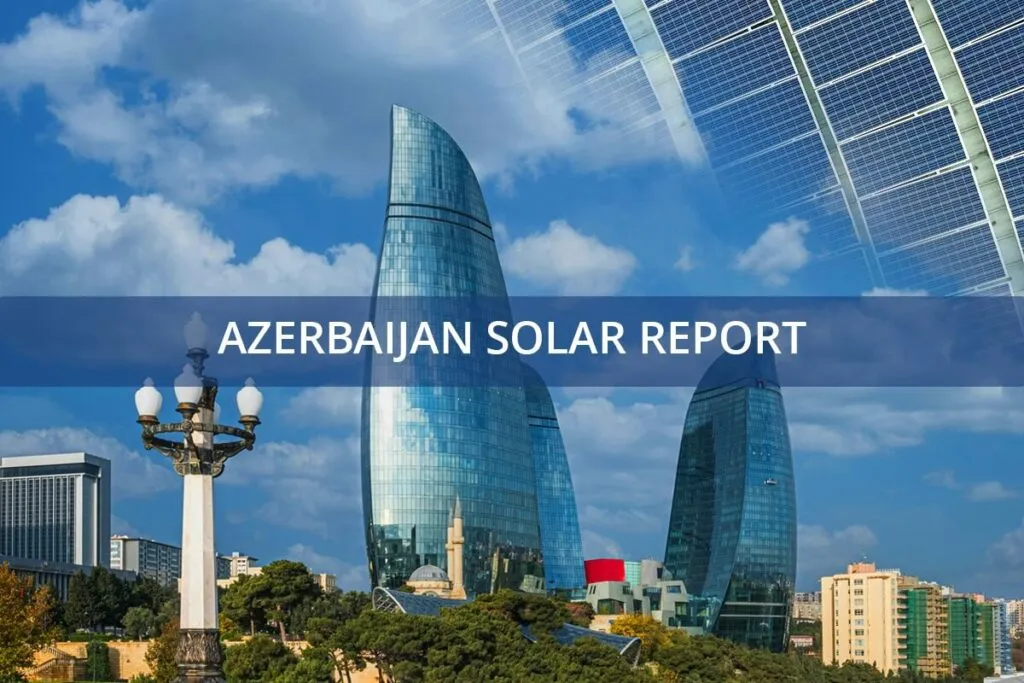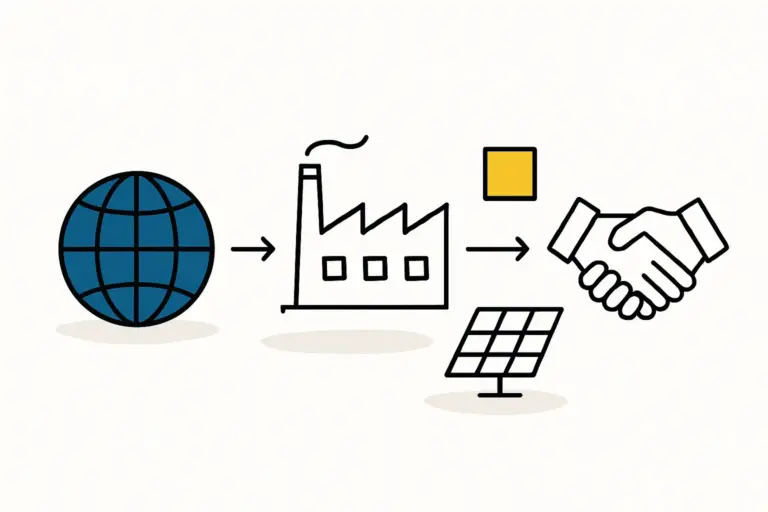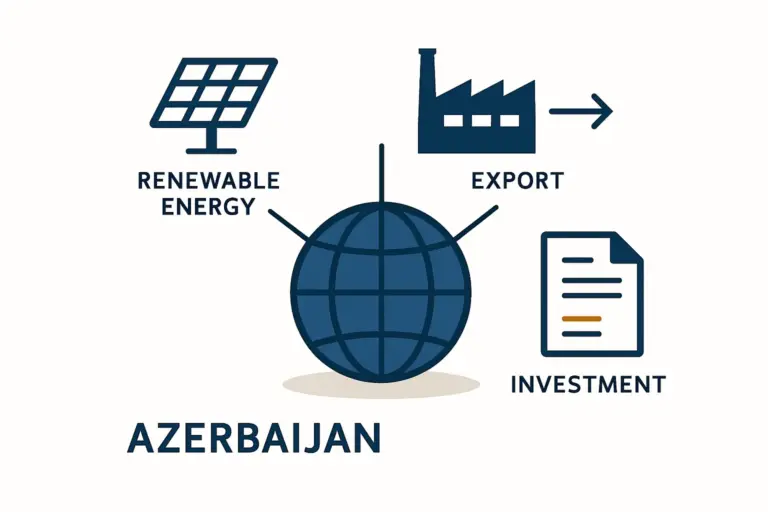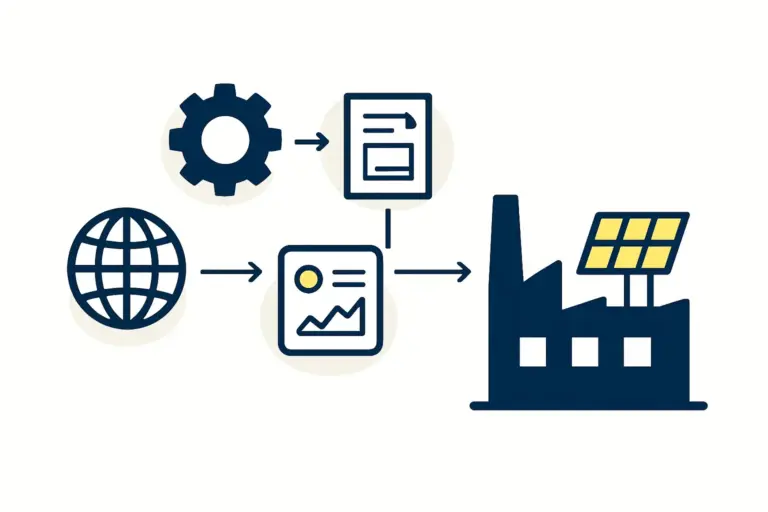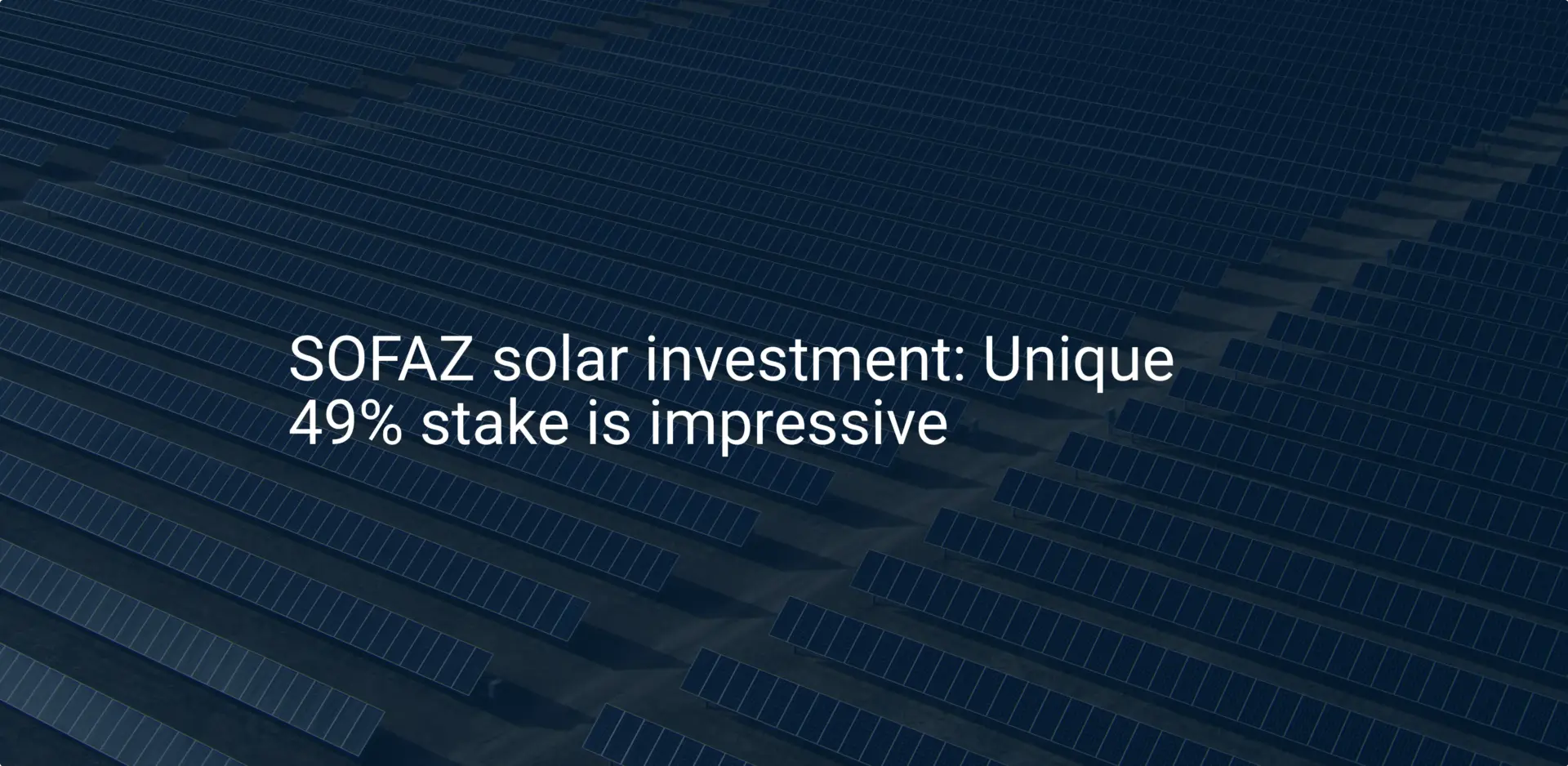Azerbaijan has set an ambitious goal: to generate 30% of its electricity from renewable sources by 2030. This national commitment opens the door for entrepreneurs and investors looking to enter the solar industry. Capitalizing on this opportunity, however, requires a thorough understanding of the local regulatory landscape.
This guide outlines the laws, permits, and standards you’ll need to navigate to establish a solar panel factory in Azerbaijan.
Table of Contents
Azerbaijan’s Renewable Energy Landscape: A Snapshot
Azerbaijan’s solar sector is built on a strong foundation. The country boasts an exceptional solar resource, with approximately 2,400 to 3,200 hours of sunshine annually. This translates to a solar energy potential of 1,500 to 2,000 kilowatt-hours per square meter (kWh/m²), creating ideal conditions for solar energy production.
The government’s strategic vision, combined with these natural advantages, points to a sustained demand for locally produced renewable energy technology.
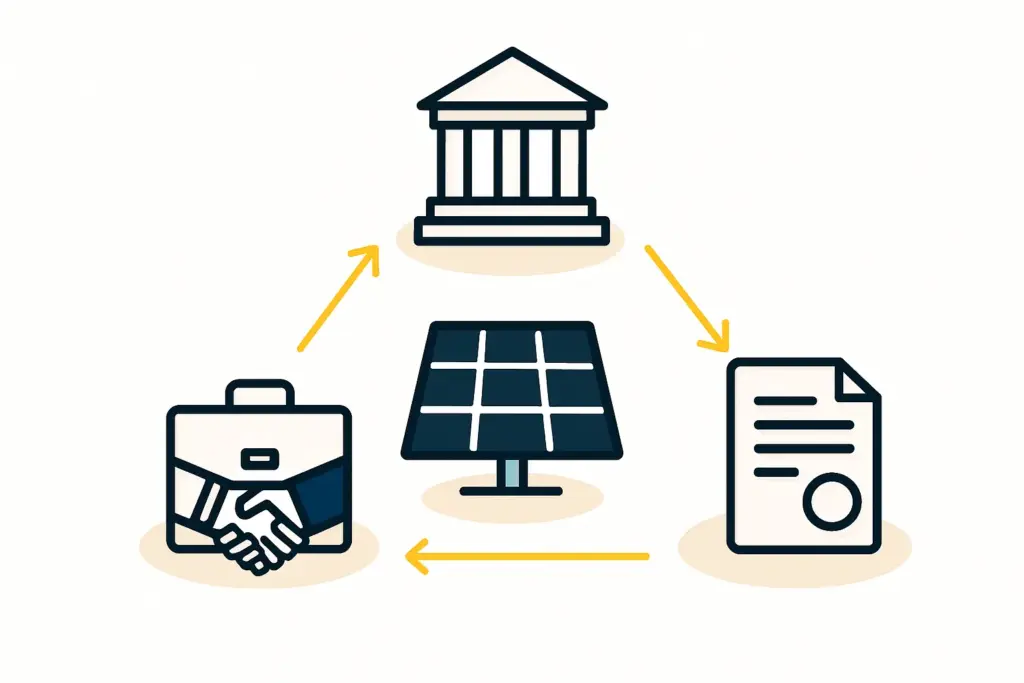
The Legal Framework: Key Laws and Regulations
Understanding the legal framework is the first step. The sector is primarily governed by the Law on the Use of Renewable Energy Resources in Electricity Production, adopted in 2021. This law lays the groundwork for developing renewable energy projects, outlines the rules for participation, and is supplemented by other key regulations, including the Law on Electro Energetics and the Law on Licenses and Permits.
Three key government bodies oversee the energy sector:
- The Ministry of Energy: Sets the overall national energy policy.
- The Azerbaijan Renewable Energy Agency (AREA): Implements state policy and supports renewable energy projects.
- The Azerbaijan Energy Regulatory Agency (AERA): Regulates the energy market, issues licenses, and sets tariffs.
Getting Started: Permits and Licensing for Manufacturers
Setting up a manufacturing facility requires careful planning to navigate the series of permits and approvals required.
Step 1: Securing a Construction Permit
Before building your factory, you must obtain a construction permit. This process involves submitting your project plans and technical documentation to the relevant state authorities for approval, ensuring your facility’s design complies with national building codes and safety standards.
Step 2: Obtaining an Electricity Generation License
Your facility will likely generate electricity for its own use or for testing. This activity requires a license from the Azerbaijan Energy Regulatory Agency (AERA), which grants you the legal right to produce electricity.
Step 3: Commissioning and Power Purchase Agreements
Once construction is complete, the facility must be officially commissioned. This involves an inspection to verify that the plant was built according to the approved plans. If you plan to sell excess power to the national grid, you will also need to secure a Power Purchase Agreement (PPA) defining the terms of sale.
Step 4: Grid Connection
The final step is connecting your facility to the national electricity grid. The national grid operator manages this process, which requires technical coordination to ensure a stable and safe connection.
Staying Compliant: Environmental Regulations
Environmental compliance is a critical aspect of any industrial operation in Azerbaijan, with the Law on Environment Protection setting the primary standards for all businesses.
A project on the scale of a solar panel factory requires an Environmental Impact Assessment (EIA). This assessment evaluates your factory’s potential environmental effects and outlines measures to mitigate them. The EIA focuses on key areas like waste management protocols for industrial byproducts and pollution control systems to protect air and water quality.
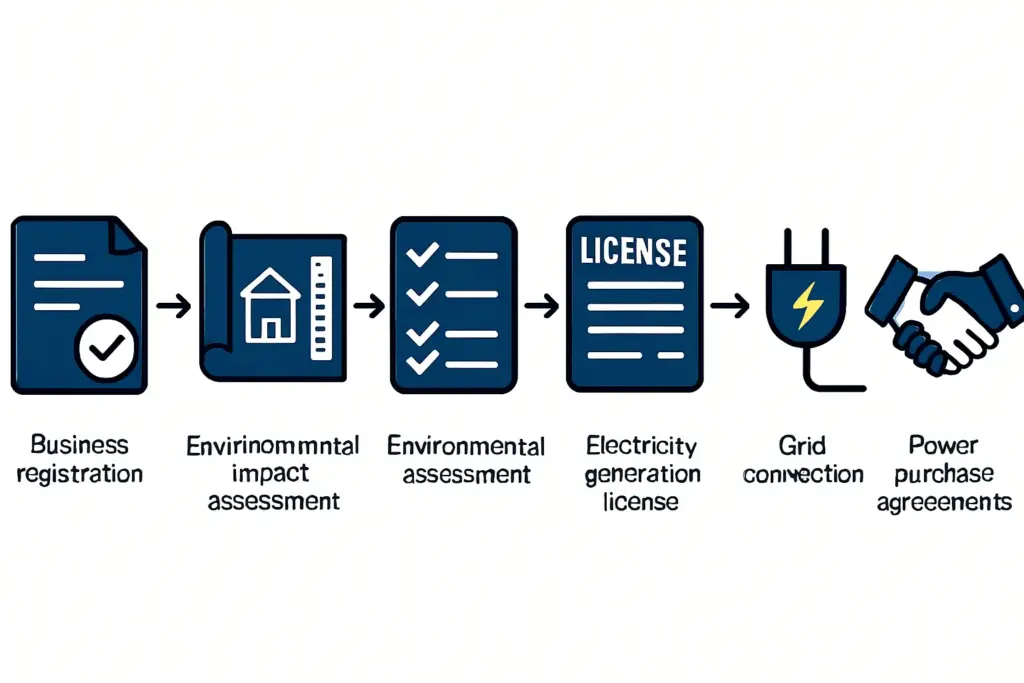
Ensuring Quality: Standards and Certifications
Currently, Azerbaijan does not have specific national quality standards for manufacturing solar panels. Adhering to recognized international standards is therefore essential for market acceptance and long-term success.
To ensure your products are credible and competitive, you should aim for certifications such as:
- IEC 61215: Covers the design and performance of crystalline silicon terrestrial photovoltaic modules.
- IEC 61730: Details the safety qualifications for PV modules.
- ISO 9001: A standard for quality management systems that demonstrates your commitment to consistent production quality.
Adopting these international standards will not only facilitate exports but also build trust with domestic buyers.
Incentives and Support for Solar Businesses
The Azerbaijani government encourages investment in renewable energy through various support mechanisms. While these incentives are subject to change, they have historically included measures like guaranteed tariffs for electricity sold to the grid and potential tax breaks for new clean energy ventures.
To understand the support currently available, it’s best to engage directly with the Azerbaijan Renewable Energy Agency (AREA), the body responsible for facilitating such investments.
The Road Ahead: Challenges and Opportunities
Like any emerging market, Azerbaijan presents a unique mix of challenges and opportunities for manufacturers.
- Challenges: Navigating bureaucracy can require patience and local expertise. Securing a steady supply of skilled labor for a specialized manufacturing process may also require investment in training programs.
- Opportunities: The primary opportunity lies in meeting the growing domestic demand driven by the government’s 30% renewable energy target. Additionally, establishing a manufacturing base in Azerbaijan can serve as a strategic hub for exporting to other countries in the Caucasus region and beyond.
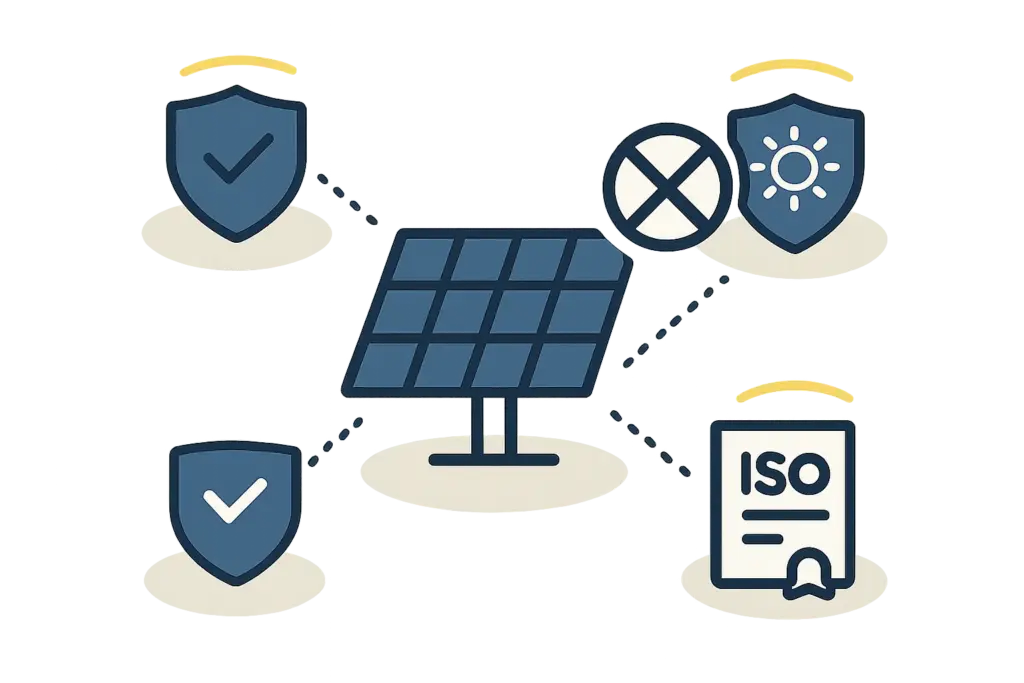
Conclusion: The Future of Solar Manufacturing in Azerbaijan
Azerbaijan is actively building a future powered by clean energy, and local manufacturing is a vital part of that vision. While the regulatory process is detailed, it is also structured and navigable. For entrepreneurs with a clear plan and a commitment to quality, the opportunity to establish a successful solar panel factory is within reach.
By understanding the legal, environmental, and quality requirements, you can confidently take the first steps toward building a profitable venture in this promising market.
Want to learn more or need expert help? Visit our free e-course or explore our services. Or, if you’re ready to dive deeper, our Premium Business Plan E-Course offers personalized guidance to get your venture off the ground. Let’s make your solar journey smooth and successful.
Frequently Asked Questions (FAQ)
Q: What are the main laws for solar energy in Azerbaijan?
A: The primary legislation is the ‘Law on the Use of Renewable Energy Resources in Electricity Production’ from 2021. Other relevant laws include the Law on Electro Energetics and the Law on Environment Protection.
Q: How long does it take to get a permit for a solar manufacturing plant?
A: The timeline varies depending on the project’s complexity and the completeness of your application. The process involves multiple stages, from construction permits to grid connection, and requires careful coordination with several government agencies. A clear business plan and expert guidance can help streamline these steps.
Q: Are there any local content requirements for solar projects?
A: While not explicitly mandated in all cases, using local labor and resources is often encouraged and can be advantageous when seeking government support or contracts. The emphasis is on building local industrial capacity.
Q: What is the role of the Azerbaijan Renewable Energy Agency (AREA)?
A: AREA is the key government body responsible for implementing state policy on renewable energy. It acts as a point of contact for investors, facilitates projects, and helps businesses navigate the process of establishing renewable energy operations in the country.

